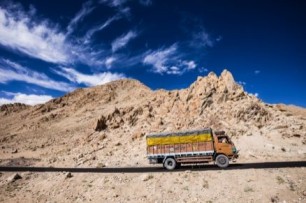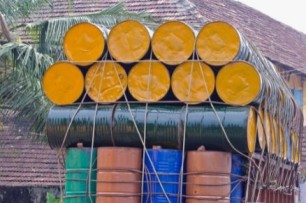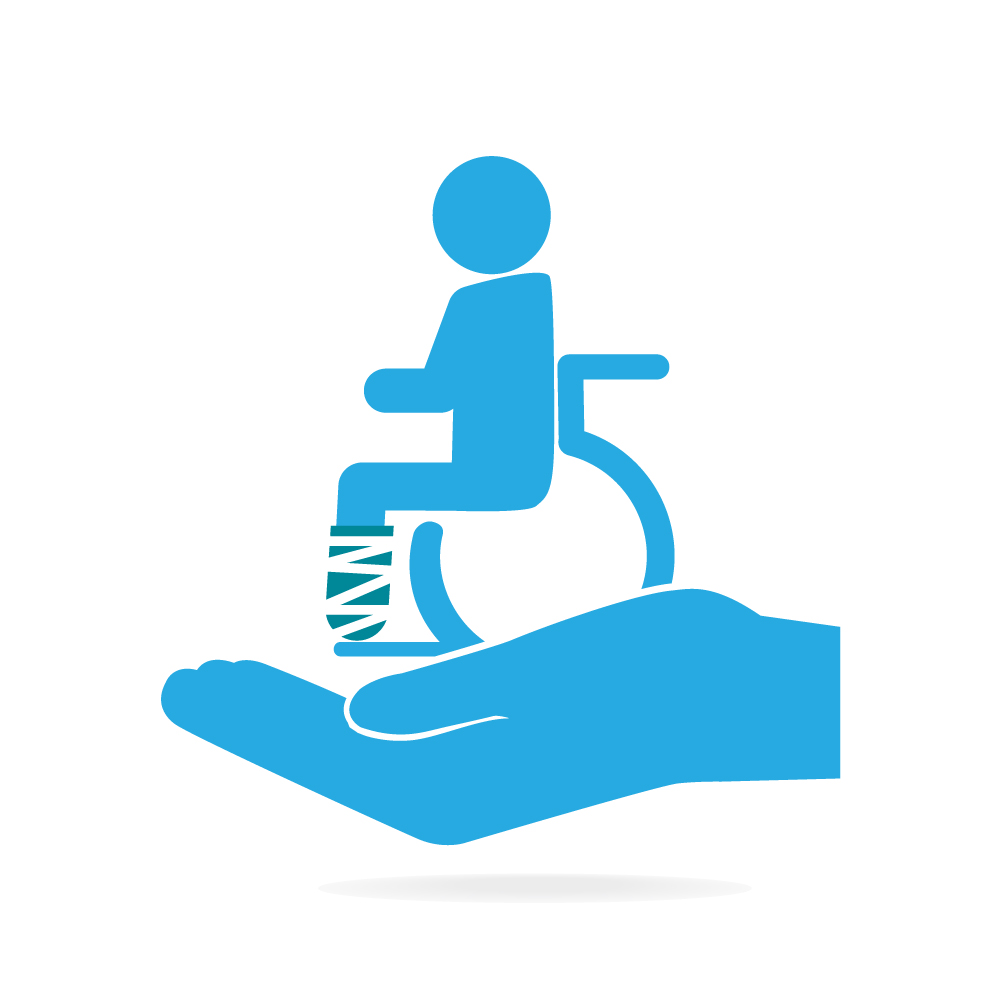General Insurance Blogs, Articles & Updates by - Magma HDI
Have us call you
- RENEW YOUR POLICY
- BUY NEW POLICY

Complete guide on buying commercial vehicle insurance
Transportation and trading of commodities have never been more accessible than now. Taxis, tractors, cranes, transport trucks, and other motor vehicles have become standard trade methods in various industries. Often, these vehicles operate outside of the commercial space and are subject to many dangers on the road.
Business owners require commercial vehicle insurance coverage to handle these risks successfully. Owners can purchase insurance covering third-party and own-damage claims and get it renewed as and when needed.
Let's get a better understanding of commercial vehicle insurance in general.
What exactly is commercial vehicle insurance?
Commercial vehicle insurance policies protect owners whose vehicles are used for business purposes. There are a variety of vehicles covered under this policy, including delivery trucks, staff cars, food trucks, and more.
The motor insurance policy provides liability and accident coverage and helps you with the payment of damages and medical costs in case of accidents. It will also cover the towing costs if your vehicle breaks down in the middle of the road.
If you're looking for online motor insurance renewal for your commercial vehicle, you need to first ensure the types of vehicles covered by the policy. Additionally, you can cross-check various insurance companies for the best features and premiums. Online motor insurance renewal is beneficial, especially when you are in the midst of day-to-day business activities.
Types of vehicles covered by commercial insurance.
1. Vehicles that carry passengers:
It includes a variety of vehicles that typically carry passengers, such as cabs, rickshaws, school buses, and private buses. Passenger transport vehicles such as taxis and school buses bear a great deal of duty due to the high volume of passengers they transport regularly. Commercial vehicle insurance protects these vehicles from financial ruin in an accident and also protects the passengers they carry.
2. Vehicles for moving goods:
Goods-carrying vehicles are primarily used for transporting goods from one location to another. Because these vehicles are so enormous and loaded with goods, they pose a greater risk. Damages to a third-party car or one's own vehicle, as well as damage to commodities, are covered under commercial vehicle insurance. It all depends on the policy coverage; therefore, thoroughly read the terms of all the plans before making a final choice.
3. Miscellaneous & Special Vehicles:
Aside from trucks, taxis, buses, and cabs, numerous other vehicles are utilised for business or commercial purposes. Special vehicles for mining, farming, and construction, for example, could be among these vehicles. Insurance for commercial vehicles protects the vehicle from any damage or loss resulting from or caused to the vehicle.
Commercial vehicle insurance has many advantages:
• Commercial vehicle insurance can be deducted as a business cost from your income tax.
• Travel agencies, automobile rental services, and other businesses can buy this insurance plan in bulk. This simplifies the procedure while allowing for a cheaper premium rate.
• It covers any losses caused by unexpected events like theft, fire, vandalism, terrorist attacks, and natural calamities.
• It provides additional rewards in the event of a death resulting from an accident.
• No claim bonus is given during policy renewals if there has been no claim throughout the policy period.
• It provides coverage for the litigation and legal bills that have been filed against you.
Your company's financial stability depends on how efficiently your commercial vehicles work and facilitate the business. Businesses must opt for purchasing motor insurance to safeguard their vehicles from all potential risk factors. Online motor insurance renewal is the best option for companies already owning an insurance policy. Alternatively, you may choose to include several optional coverages with your basic plan for some extra fee.
Click HERE to get an online motor insurance renewal.
Disclaimer: The information provided above is for illustrative purposes only. To get more details, please refer to policy wordings and prospectus before purchasing a policy.

Let's examine the most common trucking violations in India
India's economy is heavily dependent on the transport of various goods. As the world's second-most populous country and one of the fastest-growing economies, different food and industrial needs can be met only with effective and constant transport operations. Supplying goods for a population as vast as over 130 crore people isn't easy, and various modes of transport are used to meet the demand and supply requirements of the nation. Be it the well-connected train routes or the extensive trucking system, transportation is pivotal for the country.
And while the train pilots are heavily compensated and well paid, the trucking community is often neglected. With minimal pay, over the top work hours and extended working conditions, truck pilots face a lot of trouble.
Today, we highlight the most prevalent trucking violations in India.
1. Sleepless nights:
Truck drivers are constantly working for 12 hours at a stretch. Sometimes this goes on for days non-stop. Covering long distances within a given time can be challenging for the drivers. And sleepless nights and bare minimum food can add to the fatigue.
Research showed that almost 53 per cent of the current driving force face various psychological and physical issues, including but not limited to insomnia, obesity, joint pain, poor vision etc.
2. Extended work hours:
Since most truckers come from low-income groups, they are always looking for ways to work extra hours. This leads to added fatigue and exhaustion.
There have been instances when drivers have unknowingly knocked vehicles from the road and crushed the pedestrians. While there is no mandate stating the number of permissible work hours in India, it is illegal to drive for more than 10 hours at a stretch in most countries.
3. Overloading:
About 10 percent of total accidents are caused by overloading. These accidents can be caused due to various reasons such as tyre burst, loss of balance, manoeuvring the speed on an incline, worn out brakes etc. The weight of the truck changes if it's overloaded, which impacts the centre of gravity, making it challenging to handle the vehicle.
4. Poor health care:
Trucking services neglect the need to provide basic insurance to truckers and co-pilots. The truckers often turn to home remedies and generic medicines in case of injury. In most cases, they cannot afford the treatment as they prioritise reaching the destination on time. As a result, severe back pain and loss of vision have become some of the most common health issues amongst truckers.
Truckers are one of the most villainous communities on the road. However, we need to understand that they are put through extremely hostile work conditions. Providing sufficient health care and funds to truckers should be made mandatory. Limiting the working hours, maintaining a logbook and providing good resting conditions for the drivers can bring a considerable change to the trucking business in the country.
Sometimes, the truckers are responsible for bearing the cost of repairs on the truck while on the road. Burdening the drivers with such extra expense can be avoided by investing in comprehensive online motor insurance and selecting the plans that provide the best benefits. Various NGOs and individual transport companies can look for multiple covers, including health insurance, public accident insurance and motor insurance for the drivers.
Click HERE to know more about buying online motor insurance.
Disclaimer: The information provided above is for illustrative purposes only. To get more details, please refer to policy wordings and prospectus before purchasing a policy.

Twenty-one handy tips to protect your home from burglary
Problems come uninvited, so do thieves. While modern technology makes it safer than before, no homes can be declared as "burglar-proof". The skills of burglars are advancing too with time. So, to avoid clever thieves from attacking your house and stealing valuables, you need to take considerable precautions. Below are the twenty-one tips to prevent burglary at your home so that you feel guarded.
1. Get a pet dog to guard your home: Most common and convenient option is to get a pet and train it to safeguard your home. Believe it or not, most thieves are badly scared of dogs!
2. Keep your spare keys in a place known only to you: Unlike old times, you cannot keep your spare key under a flowerpot or doormat. Unsurprisingly, invaders are aware of this trick. So, it is advisable to keep your keys at some safe place, or you can hand them over to your trustworthy neighbours till you return home.
3. Keep your car keys accessible to you: At the time of intrusion, you can make them scared by pressing the car alarm with your keys.
4. Always use the peephole before opening the door: Use the peephole to see who's outside, confirm the unknown person's identity, and then only open the door.
5. Draw curtains and blinds: Surely you won't like to give some stranger an option of window shopping to your home. To ensure privacy inside your house, make a habit of drawing curtains and blinds.
6. Be a friendly neighbour: A neighbourhood watch is one of the best ways to protect your home. Protect their home when they are not around and request them the same when you are away for a long period.
7. Install security cameras for surveillance: Make this one-time investment in installing CCTV outside your home premises. No invader will break in quickly.
8. Keep your valuables safe: Considering the worst case, even if the intruder breaks into your house, make sure that your valuables, essential documents, and ornaments are in a fireproof and password-protected safe or locker.
9. Hide expensive items: Don't keep your expensive items like jewellery, watches etc., at bay where everyone can see them. It's easier for visitors and strangers to scan through while you open the door for them.
10. Install a video doorbell camera: It is a modern-day alternative to the peephole, providing a better and broader view and a clear channel for communication.
11. Keep multiple layers of defence: Using a single door is not safe. Keeping fences, external gates on the entrance further prevent invaders.
12. Shift your door hinges: Doors having hinges outside are highly vulnerable. Anyone can break in with simple tools. So, make sure hinges are inside the home.
13. Shine a light of security: Having a light outside the home and keeping the gate well-lit makes burglary less possible. Burglars usually try to avoid attacking homes that have lights on!
14. Keep the external switches and wires covered: The invaders will likely break in after cutting the cables and CCTV camera connections. So, ensure that all the cables are covered safely and not visible to intruders.
15. Timely update and upgrade doors and locks: Old doors and locks are easily breakable and cannot provide durability. Update your locks and doors from time to time.
16. Use multiple locks: Like multiple doors, use multiple locks for additional protection.
17. Secure the windows: The window is a familiar and most found intruding means by which burglars break-in. Make it safer by using good quality windowpanes, glasses, and handle locks.
18. Declutter your door: When you are not at home, ask your neighbours or inform some friend to empty your garbage bin, collect your daily newspapers or any parcels and packages dropped at your doorstep.
19. Keep security signboards: 'This property/home is under the surveillance of CCTV.' Such signboards will easily break the will of an intruder, preventing them from entering your house.
20. Don't overshare or overexpose: Make wise use of social media. And don't overshare your personal information, things about the home, or any upcoming events and trips too. It might risk your home and privacy in the first place.
21. Get a home insurance plan: A good house insurance India plan guards your house against losses in case of a burglary. Your insurance company will reimburse the value of the lost items.
Phew! Many of the above tips will save your home from burglary and make it secure inside out in your day-to-day life. The future of safe homes lies in home automation or smart homes. If you have a reasonable budget, you can also opt for such options. However, thinking of additional protection for a home is not a wrong thought. So, always invest in home insurance that provides you additional protection.
Click HERE to get the best home insurance India for your home.
Disclaimer: The information provided above is for illustrative purposes only. To get more details, please refer to policy wordings and prospectus before purchasing a policy.

How is technology making the lives of truck drivers easy?
Technology is undoubtedly a key driver for the economic growth of a country. Fuelled by the revolution in internet connectivity, it has evolved over the years and made many advancements. As a result, it plays a significant role in improving people's lives in every field, including the transport industry. Truck drivers encounter multiple issues in their day-to-day life, but the latest introduction of technology in truck drivers' lives has made things smoother for them. In this post, we share how technology is making the life of truck drivers easy on the wheels.
1. ELDs – Electronic Logbook Devices:
Truck drivers are required to manually fill forms or papers to enter the number of hours they drive. To avoid this hassle, ELDs are attached to the engine, which automatically calculates the number of driving hours. Besides, ELDs also assist in helping the truck driver with fuel consumption by the truck. Another perk of these devices is that it monitors the driving route and thus helps the truck driver's safety. Furthermore, if truck drivers encounter accidents, ELDs play a crucial role in proving the evidence.
2. Load boards:
Load boards are another vital tool used to find new shippers who need to haul their loads. This is widely used by truck drivers, owners, freight brokers, and more. You can go to load board sites and enter all the necessary information, including types of loads you can haul, weight allowance, and currently available destinations. Once you fill up all this information, shippers can contact you.
3. GPS systems for truck drivers:
GPS units are a standard device that assists truck drivers to reach their destination quickly with the shortest route. It avoids unnecessary travelling for them and results in efficient delivery. In case of traffic jams and bad weather conditions, the drivers can avoid those routes and save fuel and time.
4. Best use of smartphones:
Smartphones are excellent technology examples that are helpful for truck drivers. Through smartphones, truck drivers can communicate seamlessly and share their exact locations. This is also crucial for knowing how long the truck driver will take to reach their destination. Additionally, you can use smartphones to check out the nearest gas stations, accommodations, and more. During the breaks, truck drivers can use their phones for entertainment, such as listening to their favourite music or watching shows and movies.
5. Hands-free communication:
Voice assistant devices and other hands-free communication devices serve great purposes for truck drivers. Using hands-free communication devices ensures their eyes are on the road while informing people about their route. Since we all are aware of the consequences of holding a phone while driving, truck drivers can use hands-free communication devices and stay in contact with the dispatcher. This is also essential when the driver is confused about the exact route and needs guidance.
It is no surprise that technology innovation is pushing the limits and changing how the transport business functions and improving life on highways. However, as the industry evolves and expands, it also requires safe cover for efficient operation through motor insurance. Good motor insurance addresses the worry of mishaps on the road and puts you away from unwanted risks. Thanks to the technology, you can have online motor insurance renewal even on the move from your smartphone. So, use the technology advancement to your advantage and remain ahead in the business!
To know more about motor insurance, click HERE .
Disclaimer: The information provided above is for illustrative purposes only. To get more details, please refer to policy wordings and prospectus before purchasing a policy.

5 myths of Home Insurance
Home insurance is one of the most common insurance that people buy, but most of the buyers do not know about the complete limitations and benefits of such insurance policies. There are certain myths related to home insurance policies that are still prevailing in people’s minds. You can find a person buying the best home insurance in India, but he/she will be under the myth that the insurance policy does not cover this or that. People need to properly read the offer and scheme related documents before they are deciding on buying any particular policy. Some of the myths that have been there in people’s minds for long periods have been debunked here: -
1 If the damage to the home is severe enough that it is beyond repair and you cannot live in it while it is being repaired or renovated, the insurance company will put you up in a hotel or a serviced apartment temporarily while the work is being done. This is true for some insurance plans but not all insurance plans and if loss-of-use is there, it will be clearly stated in the policy. People should not be under the myth that Loss-of-use is present in all policies else they will have to bear a huge financial burden of paying the hotel fees as well.
2.Many people believe that their belongings lost in the fire will be replaced with new ones if they have a policy. However, most of the policies do not have this clause. Instead, the losses are calculated by what the items were worth before they were lost in the fire. A four-year-old computer that you bought for Rs. 50,000 may be worth only Rs. 13,000 before the calamity and the insurance company will calculate the loss by counting the price of the computer as Rs. 13,000 and not the original price of Rs. 50,000.
3.Even the plan which may be the best home insurance in India may omit coverage against flood. Floods can occur due to several reasons, such as a storm, hurricane, ruptured pipes or drainage stoppages, or ruptured sewer backup but most of the times flood is not included in the policy. If you live in a flood-prone area, there are special flood policy packages offered by selected firms but in general, it is not included in a home insurance policy.
4.People generally believe that low premium means low insurance coverage, but this is not true. You can lower your premium in many ways without reducing your coverage if you take safety precautions of your own to protect your house. If you have security devices such as fire alarms or burglar alarms installed at your house, you can tell that to the insurance provider, and your premium can be lowered.
After the fire tragedy, some items are destroyed or damaged to such an extent that for the insurer, it could be challenging to identify for assigning the claim. So, as a responsible party, you ought to click as many pictures and shoot videos as possible of the damaged, smoked rooms to show the physical evidence of the actual damage before it gets wiped by a restoration company.
5.This is a myth that you need to be a homeowner to buy home insurance. You can very well buy home insurance for your belongings and contents of the house without being a homeowner. A tenant can purchase home insurance for his belongings and in case the tenant shifts; the policy can be approved for a change of address as well. Not only this, but the homeowner can also get home insurance for the structure of the rented accommodation or the house in which there are tenants living.
While buying even the best home insurance in India, you need to be careful and read all the documents for the policy carefully to understand what all things are included in the insurance and what all things are not included in the insurance. Different policies are accommodating different perils and you must choose the one that fits your requirements the best.

Home Buyer's Guide
Owning a home is generally seen as a sign of adulthood and financial responsibility. Buying a home is a huge step and a very big commitment and requires a lot of work on your part. You need to be aware of all the different things and steps involved with everything to fully comprehend what all things need to be taken care of before you buy a home such as EMI payments, property tax payments,best home insurance policies in India and several others. Many people rush into buying homes which is never a good idea because if you are not careful while buying a home, there is a probability that you may be making a bad investment.
When buying a home, you need to be sure that you can sustain the financial burden and it won’t mess up your financial stability and for that, you need to understand the various aspects of homeownership. You can consider this as a guide which will help you in making a correct decision that will be beneficial for you in the long run as a good investment. Going step-by-step, you need to ponder over carefully on all these things: -
- The need to buy the property - Many people decide to buy a home just because they want to prove to the world that they have attained adulthood and they can own a home. The decision to buy a home should not be made so precariously and proper thought must be given to whether you need to buy a property and how will it affect your financial stability in terms of mortgages.
- Shortlisting the Property - Once you have properly assessed your requirements for a property, you need to now ponder upon what kind of home would you like to live in. Shortlisting can also be done based on whether you want to move in immediately or you want to construct the house according to your preferences. Ready to move in property generally require enough finances for paying cash up-front to buy them but for a house under construction, you can take bank loans while paying less cash up-front. The property should also be shortlisted based on what kind of location you want to live in.
- Understand the tax implications - Everyone wants to reduce their taxes, and for this, you need to understand what kinds of taxes you have to pay and how can that tax be reduced smartly. You can save capital gain tax on residential properties but not on commercial properties.
- The Legal Perspective - Once you have decided on buying a property, take care of all the legal things that need to be done so that the property is registered under your name or someone in your family. All the documents should be clear, and you should be comprehensive with regards to all the paperwork for the property to avoid any issues in the future.
- Manage Finances - You need to have a stable financial system so that you do not face any difficulty in your daily life after deciding to buy a new property. You can also avail home loans from banks to finance the new property by paying less cash upfront to the developer of the property. Your home loan eligibility and the amount for which your home loan is sanctioned depends on your ability to repay the loan, i.e. indirectly your salary..
Home buying is generally categorized into three different stages which are the Pre-purchase stage, financial handling stage and the Post-purchase stage. You need to be properly involved in all of these stages and understand each and everything so that you do not face any legal problems in future.
Make sure that all documents are complete and if you rent out your property, have proper rent agreement papers made. Buying a home also means you need to have home insurance, and you can buy some of the best home insurance policies in India from different insurance providers at attractive premium rates. Compare the policies properly and buy the one that suits your requirements the best.

Is Personal Accident Insurance essential in India?
While driving on the Indian roads, the possibility of an accident can never be ruled out. Whether due to a momentary lapse on your part or due to oversight on the part of someone else, accidents can take place anytime and anywhere. But the damages/losses incurred due to it can be mitigated with the help of personal accident insurance in India.
What is Personal Accident Insurance
Personal accident insurance is offered in combination with Third-party policy. Insurance companies charge a nominal fee for offering this coverage. Under this policy, you will be reimbursed by the insurance company for injuries suffered while driving your vehicle.
Is it mandatory to get personal accident insurance in India?
As per the latest insurance regulations introduced by the government, it is mandatory to get personal accident insurance in India for a vehicle owner. The current regulations by IRDAI state that the car owners, as well as bike owners, will now get a mandatory personal accident cover of Rs. 15 Lacs as per their motor insurance policies. Previously, this cover was capped at Rs. 2 Lacs for car owners and Rs. 1 Lac for two-wheeler owners against a premium of Rs. 100 and Rs. 50 respectively.
Now the premium has been increased to Rs. 750 for a cover of Rs 15 Lacs. This premium is payable over and above the mandatory third party insurance cover. If the insured person wants a higher cover, then the same can be availed by paying a higher premium, which is to be decided by the insurance company. The coverage of the policy extends to the owners of the vehicle as well as the drivers of the vehicle, provided the availability of a valid driving license.
This improvement in the personal accident insurance in India was introduced after a judgement by the Madras High Court in the year 2017. While passing the judgement, the court noted that enhancing the personal accident cover will act as some kind of solace to the victim as well as survivors of the accident.
Though there are some exceptions applicable wherein the owner can opt-out of this mandatory personal accident cover i.e.
- If the vehicle owner already has a valid personal accident cover policy with a sum insured of more than Rs. 15 Lacs.
- If the owner already has a motor insurance policy with a compulsory personal accident cover with a sum insured of more than Rs. 15 Lacs for another vehicle owned by him/her.
- If the vehicle owner already has a separate compulsory personal accident policy.
Benefits of Personal Accident Insurance
Some of the standout benefits of subscribing to personal accident insurance in India have been listed here: -
- The policy covers in the case of the unfortunate death of the insured. The nominee is entitled to the entire sum.
- The cover is even provided for total permanent disability, permanent total disability, permanent partial disability and temporary total disablement.
- Some policies even cover hospitalization due to an accident and the cost of transportation for mortal remains in case of death.
- The dismemberment of any kind is also covered in some policies. Certain companies have also given said ratio and benefits for certain kinds of injuries that will then be paid to the policyholders
- Very few companies also provide optional coverage in case of burns. This can also be considered before personal accident insurance is taken into action.
- The treatment for the burns is also covered by some insurance companies.
With such extensive benefits on offer, availing personal accident insurance in India is a necessity for the vehicle owners.

Climate change is affecting not just the planet, but your home insurance as well
Climate change is the shift in the temperature and weather patterns over a long period. It affects the entire planet by causing abnormally cold conditions in some parts of the earth, while some areas witness extreme heatwave conditions. Some regions are experiencing long dry spells, while others are experiencing devastating floods.
Human activities are primarily responsible for the rapid climate change across the planet. Excessive burning of fossil fuels like oil and gas and irresponsible exploitation of natural resources result in climate change. If you wish to buy home insurance online India to deal with damages due to untimely incidents, here’s how this may directly impact you.
1. Increase in premium:
Some regions of the planet are witnessing a higher impact of climate change and increased natural disasters such as floods, wildfires, deep freeze, rise in sea level, etc., than others. Home insurance premiums have shot up at an alarming rate in such regions. It is becoming very costly for homeowners to buy home insurance online India policy in such areas.
This is logical as the risk of insuring houses in these places and the number of claims is rising. Hence, it is becoming financially unsustainable for insurers to provide insurance services at the prevailing rates. Home insurance premiums have increased by around 10%-12% on an annual basis. This rate varies and is even higher for houses in heavy disaster-prone areas.
2. Rise in the number of inhabitants:
Disaster-prone areas offer inexpensive land, which increases their demand. This results in the increasing population and limited availability of land in disaster-prone areas. However, houses in areas prone to flooding or nearby forests always have a higher risk.
Houses near a forest always pose a higher chance of starting a wildfire by accident. More house inhabitants mean more damage during severe flooding or other natural disasters. These factors influence home insurance policies, their terms and conditions, and premium in areas vulnerable to natural disasters.
3. Difficulty in getting home insurance:
Residents in regions that are witnessing disasters due to climate change are finding it difficult to get their homes insured easily. The probability of damage to their houses is very high because of the topography of their area. For example, rising sea levels due to climate change threaten the existence of dwellings close to the sea shores. Several cities in the world face the risk of extinction by submerging in seawater due to rising sea levels.
Insurers are not interested in insuring houses in such high-risk areas. This makes it difficult for people to get their homes insured, even after shelling out high premiums, which are often unaffordable for the middle & low-income strata. This increases the risk of complete financial ruin in the event of a natural disaster.
Abrupt climate change is catastrophic. It can cause extreme heat or cold conditions, floods and droughts, hurricanes, and tornadoes. Moreover, it can also result in biodiversity loss. Although climate change is inevitable, we can control the pace with which it changes. With the risk of abrupt climate change looming on our heads, the wisest decision in these times is to buy home insurance online India. Opt for comprehensive coverage against damages to the home structure and contents, loss due to short circuits, fire, floods, etc.
Click HERE to buy home insurance online India.
Disclaimer: The information provided above is for illustrative purposes only. To get more details, please refer to policy wordings and prospectus before purchasing a policy.


